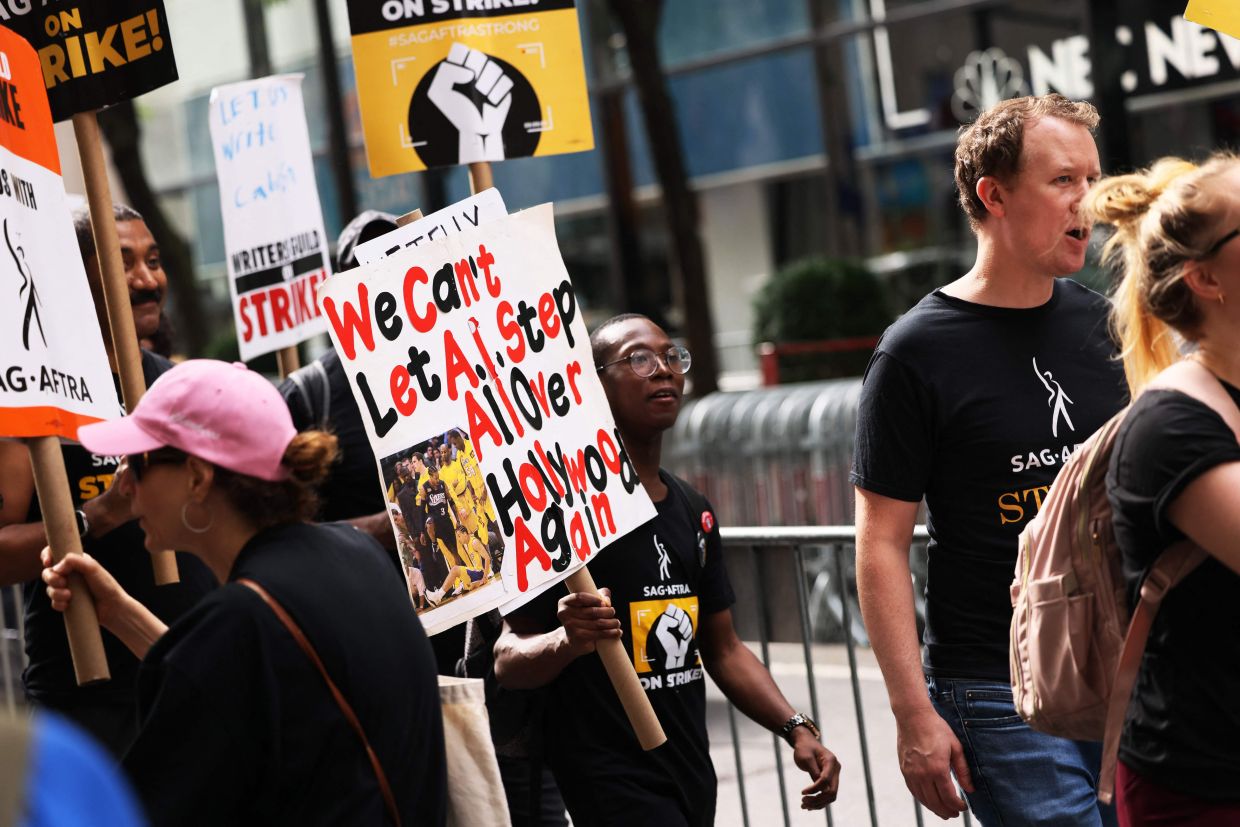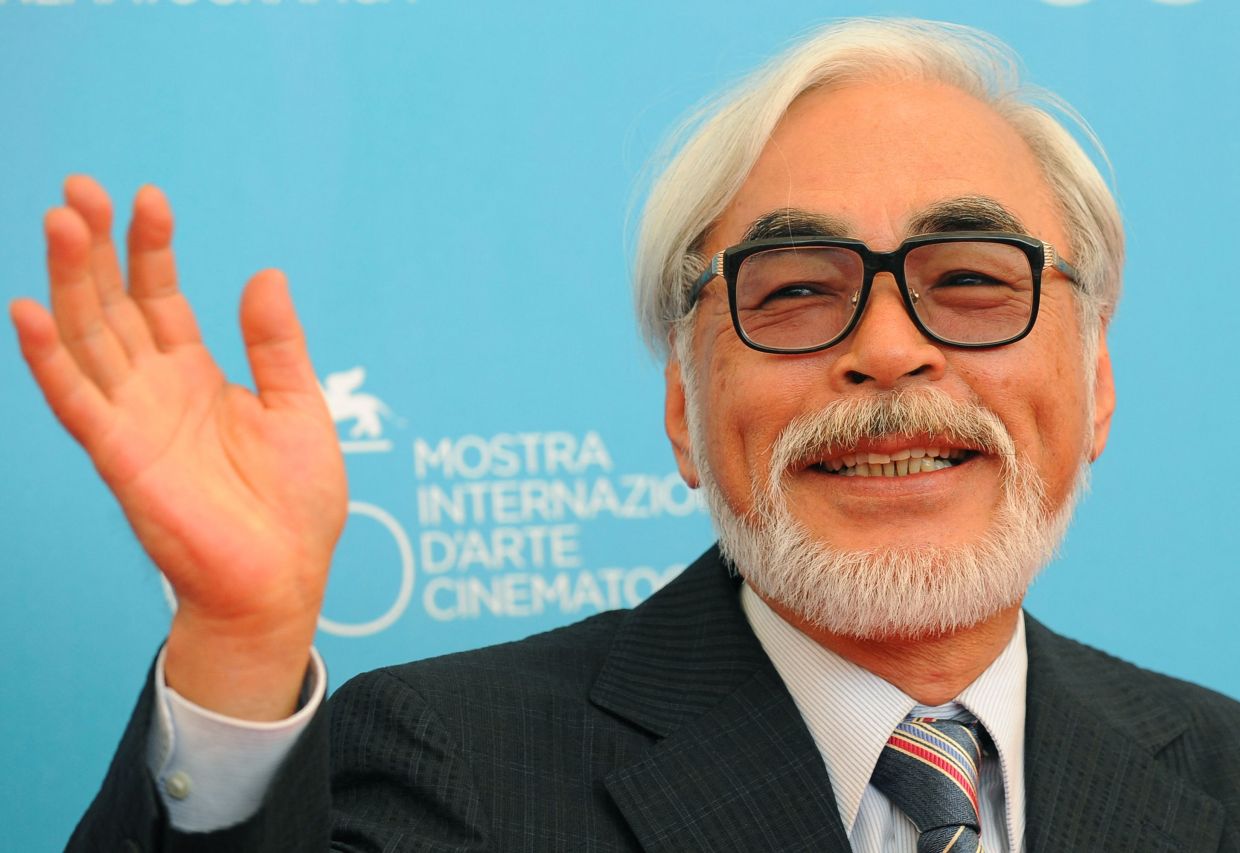Industrial Light & Magic used AI to de-age Mark Hamill in the 2021 series 'The Book Of Boba Fett'. Photo: Handout
The buzzword for 2023 should be “artificial intelligence” (AI) as everyone’s talking about it, specifically ChatGPT which has taken every industry by storm.
The chatbot developed by OpenAI is now widely used by everyone – from diligent students refining their theses to secretaries crafting emails and enterprising executives preparing slide presentations.
ChatGPT has become the indispensable collaborator.
The entertainment industry is no different. Scriptwriters, editors and more have turned to AI as their trusty partner at work.
While some have embraced the technology with open arms, others are wary of what it would do to the industry, and more importantly, their livelihood.
So, is AI here to help or hinder?
That’s the pressing question that is on stakeholders’ mind.
US strikes fuelled by AI
The visual effects teams in Hollywood are the first to publicly embrace the use of AI.
It is with the help of AI that Harrison Ford, 81, is able to look young again in the new Indiana Jones movie. Will Smith also got the AI treatment to shave a few years off in the action movie, Gemini Man.
Industrial Light & Magic, the company responsible for the visual effects in many films including Jurassic Park, used AI technology to de-age a 71-year-old Mark Hamill as a young Luke Skywalker in the 2021 series The Book Of Boba Fett.While these three actors, among the many, agreed to let AI work its magic, not everyone is thrilled with this idea.
John Wick star Keanu Reeves is one of them.
In a recent interview with Wired magazine, the actor says that he has banned studios from using AI on his performance. “If you go into deepfake land, it has none of your points of view. That’s scary,” Reeves, 59, says.
In fact, the Writers Guild Of America and Screen Actors Guild strikes that began on May 2 and July 14 respectively, in Hollywood were partly fuelled by the usage of AI in the film industry.
Actors and writers are worried that the major studios in Hollywood are likely to use AI to exploit them.
Generative AI – which has become widespread in the past couple of years in the entertainment industry – is able to produce photorealistic images (like the ones mentioned above); has written works, from scripts to storyboards; as well as constructed almost-identical vocals of celebrities.
Hollywood writers are worried their services would no longer be needed, or maybe reduced to just editing and fact-checking scripts that AI spits out.
Actors, on the other hand, are anxious that studios will own their image and voice after they star in one movie and they will no longer be hired for sequels or future projects as AI will be able to replicate their likeness.
Even old school filmmakers like Christopher Nolan says that, while he won’t apply AI to everything he does, he is ready to adopt it for some parts of his work.
“I’m, you know, very much the old analogue fusty filmmaker. I shoot on film. And I try to give the actors a complete reality around it.
“My position on technology as far as it relates to my work is that I want to use technology for what it’s best for.
“Like if we do a stunt, a hazardous stunt. You could do it with much more visible wires, and then you just paint out the wires. Things like that,” the Oscar-winning director tells Wired magazine.
Visionary directors such as Guillermo Del Toro and Hayao Miyazaki are quite vehement against AI in arts.
When asked of his opinion on AI at the recent Toronto Film Festival, Oscar-winner Del Toro has said: “People ask if I’m worried about artificial intelligence, I say I’m worried about natural stupidity. It’s just a tool, right?
“If anyone wants movies made by AI, let them get it immediately. I don’t care about people who want to be fulfilled and get something s—, quickly... Otherwise, why not buy a printer, print the Mona Lisa and say you made it.”
In a 2019 documentary, legendary Japanese auteur Miyazaki was quoted as saying he was “disgusted” when shown AI-powered graphics.
“Whoever creates this stuff has no idea what pain is whatsoever... I would never wish to incorporate this technology into my work at all. I strongly feel that this is an insult to life itself.”
Human touch needed
Here in Malaysia, the sentiment from local filmmakers is that they are not as worried as their US counterparts.
When StarLifestyle approached a few industry players, most felt that while the use of AI within the industry is inevitable, it cannot completely replace humans.
Screenwriter Alfie Palermo says that he has never used AI for his work and neither does he feel the need to.
“At the end of the day, humans can’t be replicated by any sort of artificial intelligence. There’s still the human touch that’s needed, that creates.
“When it comes to writing, there is a certain voice that’s inherent in all the writers you love that makes you want to read their work. This ‘voice’ is something original that comes from human experience rather an artificial experience,” says Alfie who has written the screenplay for the drama series One Cent Thief and the recent horror flick, Rahsia.
Director Jason Chong says when AI is used correctly, it can help speed up the creative process.
“AI has a place in the creative industry, in terms of research and brainstorming. Instead of spending hours looking for certain direction on how to develop a story, maybe we can ask AI to help and then it will come up with 10 suggestions. From there, we can take it and develop our own creative story.
“So, it’s not a replacement for creative work, but a tool to shorten the research and the development period,” the director of the upcoming sports movie Gemencheh Boys, says.
National Film Development Corporation (Finas) chairman Datuk Kamil Othman also agrees AI can’t take over the local film industry completely.
“AI can only give you so much, the depth of those emotions is still something that only humans have access to, the author has to provide that,” he says when contacted.
Kamil adds that even with the presence of AI, it is only here to facilitate humans, one still needs to have originality.
He takes a scriptwriter as an example.
“If you are a good scriptwriter, you can still come up with good stories. Sure, AI can also come up with (an idea for a) story. But you don’t use that as your first reference. Your idea has to be there first, then maybe you use AI to see how you can improve,” he says.
Kamil then adds: “Basically, I am not too worried about technology. I feel like I’m worried about those lazy people who use AI as the means to present their thoughts and opinions.”
When we ask if Finas would finance a project that is AI-generated, he says the body has to assess the script, as with any other project.
“We will evaluate the script and find out what the story means to the proposer. But if the script has no originality, and we ask questions and (the filmmakers) are not able to answer... we are not interested,” Kamil says.
Regulations required
Dr Ngu Ik Ying, head of the Media and Communication department, Faculty of Humanities and Health Sciences at Curtin University, Malaysia, opines that technology convergence has transformed the media landscape and the way content is produced, distributed and consumed.
This just means that the Malaysian entertainment industry needs to unlearn and relearn what they understand about the creative process.
“We can’t say that (AI) hinders or helps the Malaysian entertainment industry; it merely changes the way content is tailor-made to suit the audience. The problem now is whether our Malaysian content creators are able to adopt this new skill and cope with the change,” she says.
Likewise, Datuk Norman Abdul Halim, president and CEO of KRU Group, says the industry as a whole needs to evolve with the advancement of technology.
“Just like any changes in the past, the industry needs to embrace how AI will co-exist with recording artistes, scriptwriters, composers, producers, etc,” Norman says.
“We may see more virtual artistes (singers and actors) in the future taking creativity to the next level. And we may see more user-generated content getting mainstream success,” he adds.
Recently, an English radio station in Malaysia made history by introducing the country’s first AI radio DJ that goes by the name of Aina Sabrina. DJ Aina hosts a two-hour show on weekdays.
All stakeholders agree they cannot deny that AI will play an important role in the entertainment industry in Malaysia in the near future.
Thus, they hope there will be some sort of regulation put in place to protect all involved.
“I think it will have a significant impact if left unregulated,” Alfie says.
Ngu says that while there should be regulations put in place, thorough studies need to be done before implementing them.
“I think the first step should be educating people about how the algorithms work. Second, the media platform needs to be responsible and ethical in managing their content and take users’ privacy issues seriously.
“Third, our government should monitor the operations of these companies and ensure that they abide by the rules,” Ngu says.
“Proper guidelines on intellectual property should be developed and the protection of IP should be enforced through co- operation and collaboration by multiple stakeholders.
“A law is required but shouldn’t be done hastily or at the expense of freedom of expression, be it human interpersonal communication or computer-mediated communication,” she adds.
On the sidelines
For now, most of the industry people in Malaysia are observing from the sidelines where AI is concerned.
“I think the US is taking the lead on this issue. It will be interesting to see the outcome of the writers’ strike,” Chong says.
“But I’m sure that the (Hollywood) industry has the most to lose in terms of revenue, not to mention all these talents in the industry.
“Just imagine if one day all the great writers walked away. It will be a shame just talking to the computer. ‘Hello, give me this’, without the (essential) human discussions and what-not.”
On Sept 24, Hollywood writers and studios reached a tentative deal to end the strike after nearly 146 days.
The Associated Press reported that on Sept 26, on matters regarding artificial intelligence, the US writers got the regulation and control of the emerging technology they had sought.
The article stated: "Under the contract, raw, AI-generated storylines will not be regarded as 'literary material' – a term in their contracts for scripts and other story forms a screenwriter produces. This means they won't be competing with computers for screen credits.
"Nor will AI-generated stories be considered 'source' material, their contractual language for the novels, video games or other works that writers may adapt into scripts.
"Writers have the right under the deal to use AI in their process if the company they are working for agrees and other conditions are met. But companies cannot require a writer to use AI."
Meanwhile, in conversations with StarLifestyle, industry players in Malaysia advocate for originality, emphasising that AI – at least for the time being – has its limitations.
“Sometimes if you worry about the tool being better than you... it just means the tool has more resources than you.
“Human beings have to work twice as hard, to come up with something original. AI may give you some ideas... but it won’t be original,” Kamil says.
Ngu echoes the sentiment: “I personally think that as long as we are able to create narratives that are appealing, technology is just a means of storytelling.”
However, Ngu believes that industry players should also begin initiating some transformations.
Ngu says: “The change is here, we have to change; if not, we will lose out. That’s my advice to the entertainment industry in Malaysia.”







